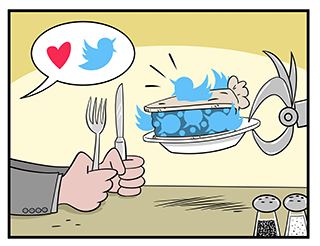You Are The Product

How much do you pay each month to use Facebook? How about Instagram? Tumblr? YouTube?
What?! You don’t pay a single cent or any of these services? That sounds too good to be true.
OK, OK. The authors of this site are fully aware that more than four billion human beings on this planet regularly visit their favorite social media sites without reaching for their wallet. Technically, these services are free.
Take a moment to reflect on this. Why are these technology giants so eager to give away their services? For that matter, how are these corporations able to report billions of dollars in revenue every year?
The answer is simple. You don’t pay to use social media platforms because you are the product. Facebook, Instagram, and other social media platforms make money by selling your attention and your online behavioral data to the highest bidder.
Many people would say that this is a pretty good deal for the user. The longer we use these platforms, the more familiar and inviting they become, like a favorite sweater that has gradually adapted to the shape of our body. We build friendships, nurture community, anonymously check up on old friends and lost loves, and turn to our status updates when we have something important to say.
We also become more valuable to advertisers with each click, like, love or LOL. Every time we join a group, express interest in a friend’s improv performance, or click on an external link, we make our online dossier even more precise. Like a photograph, we gradually come into focus.
For this reason, some individuals have chosen to reject social media altogether. This is a valid choice, but it’s not always easy to turn our backs on the tangible benefits of these platforms. It’s possible to engage in social media with our eyes wide open, remembering that items in our feed have been placed (or boosted) by advertisers who have purchased our time and attention.
This is part of the bargain that we make when creating an account with most social media platforms, and it is another reason that we should not rely exclusively on these services to keep us informed about world events.
As the old saying goes, there is always free cheese in a mousetrap.
